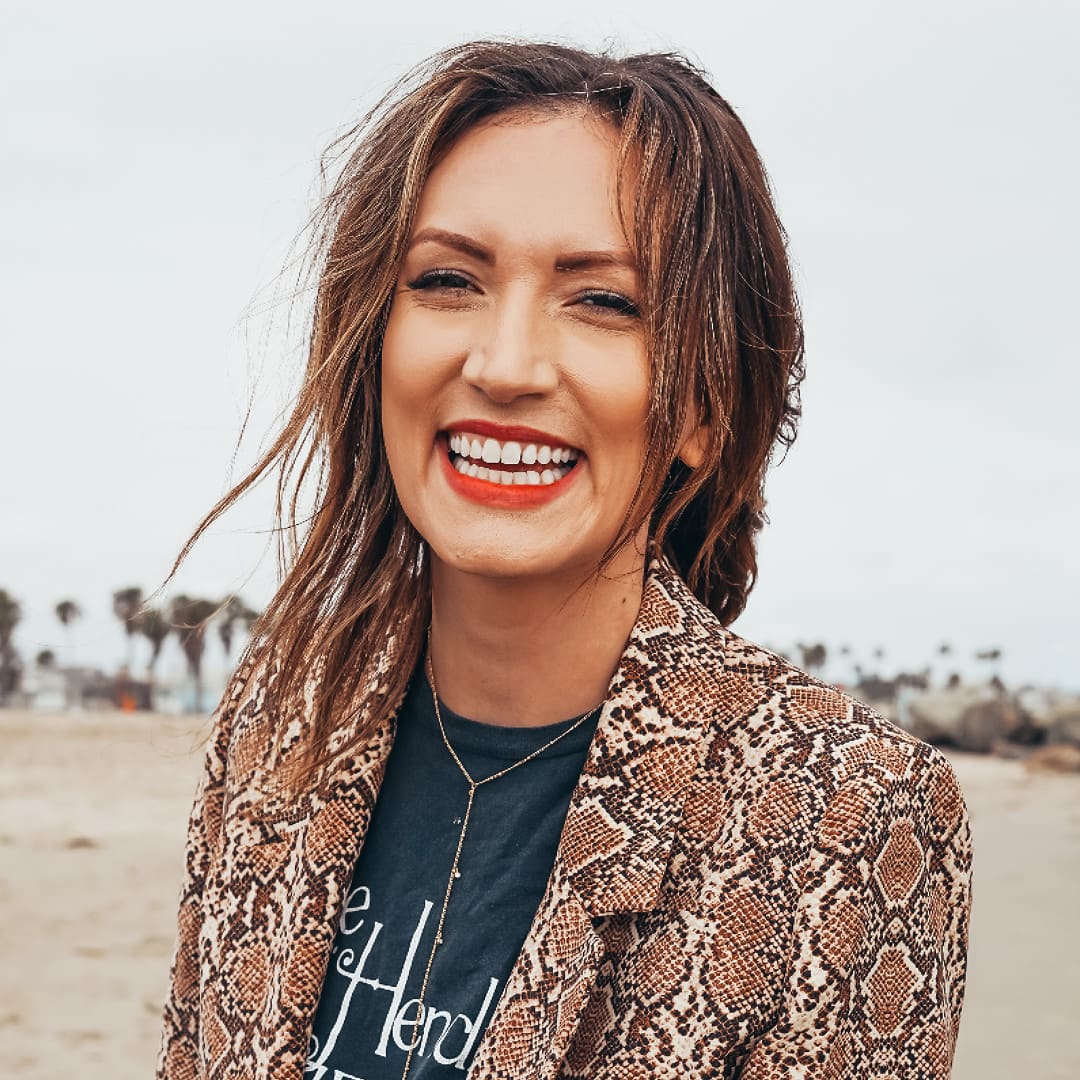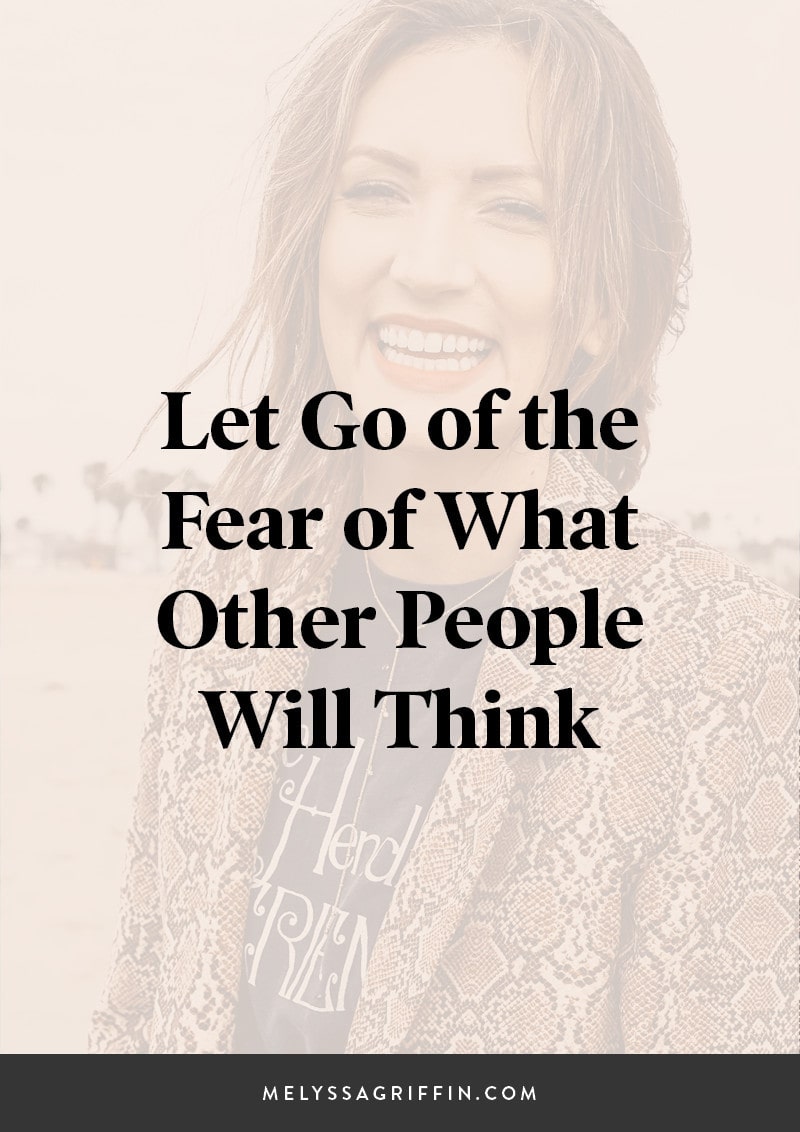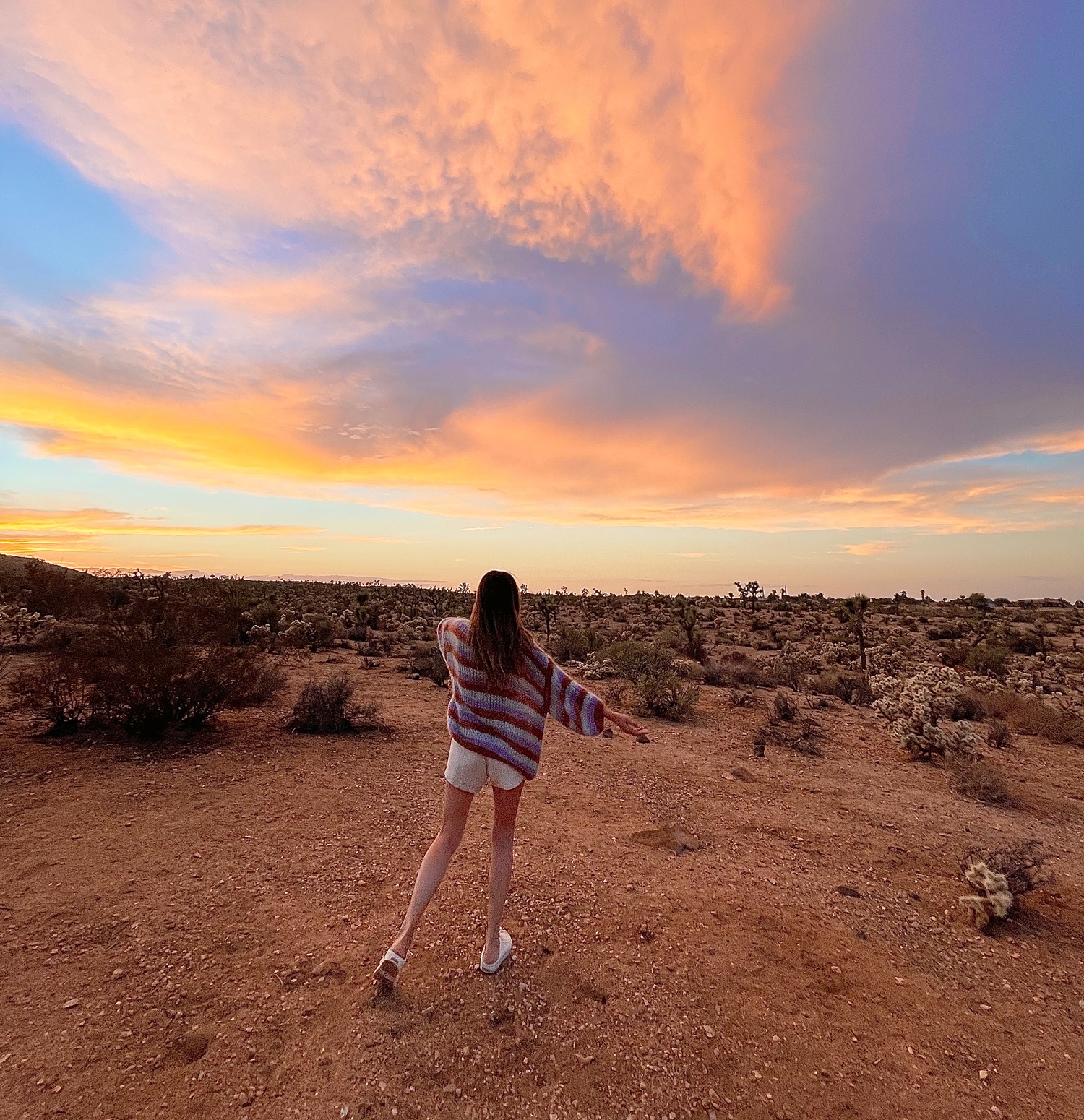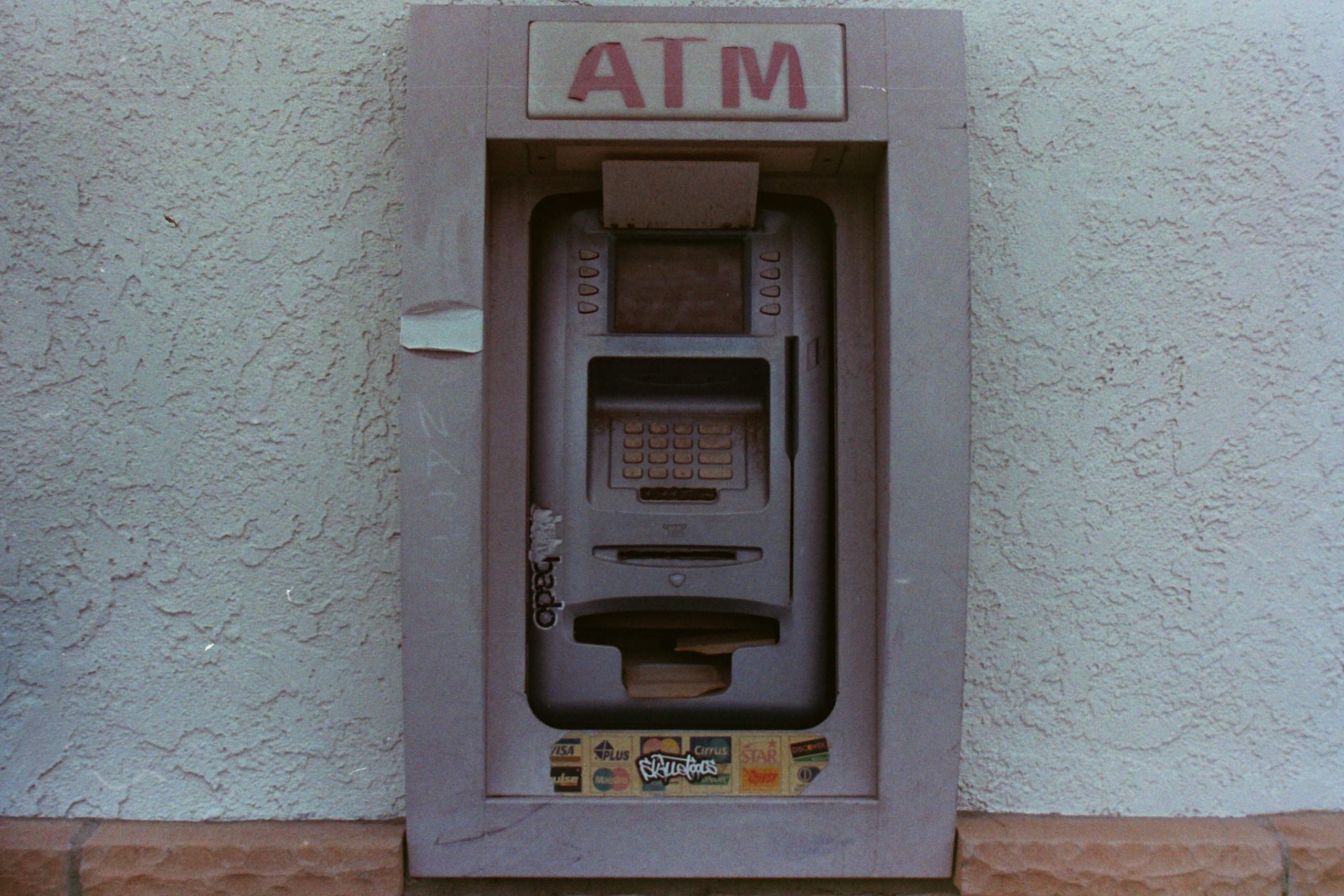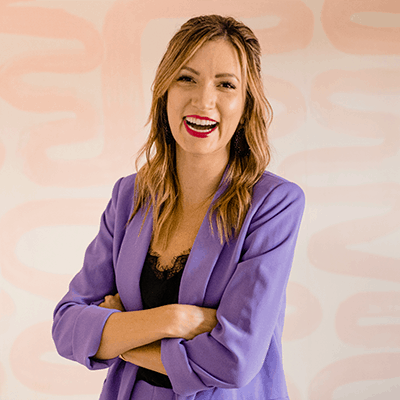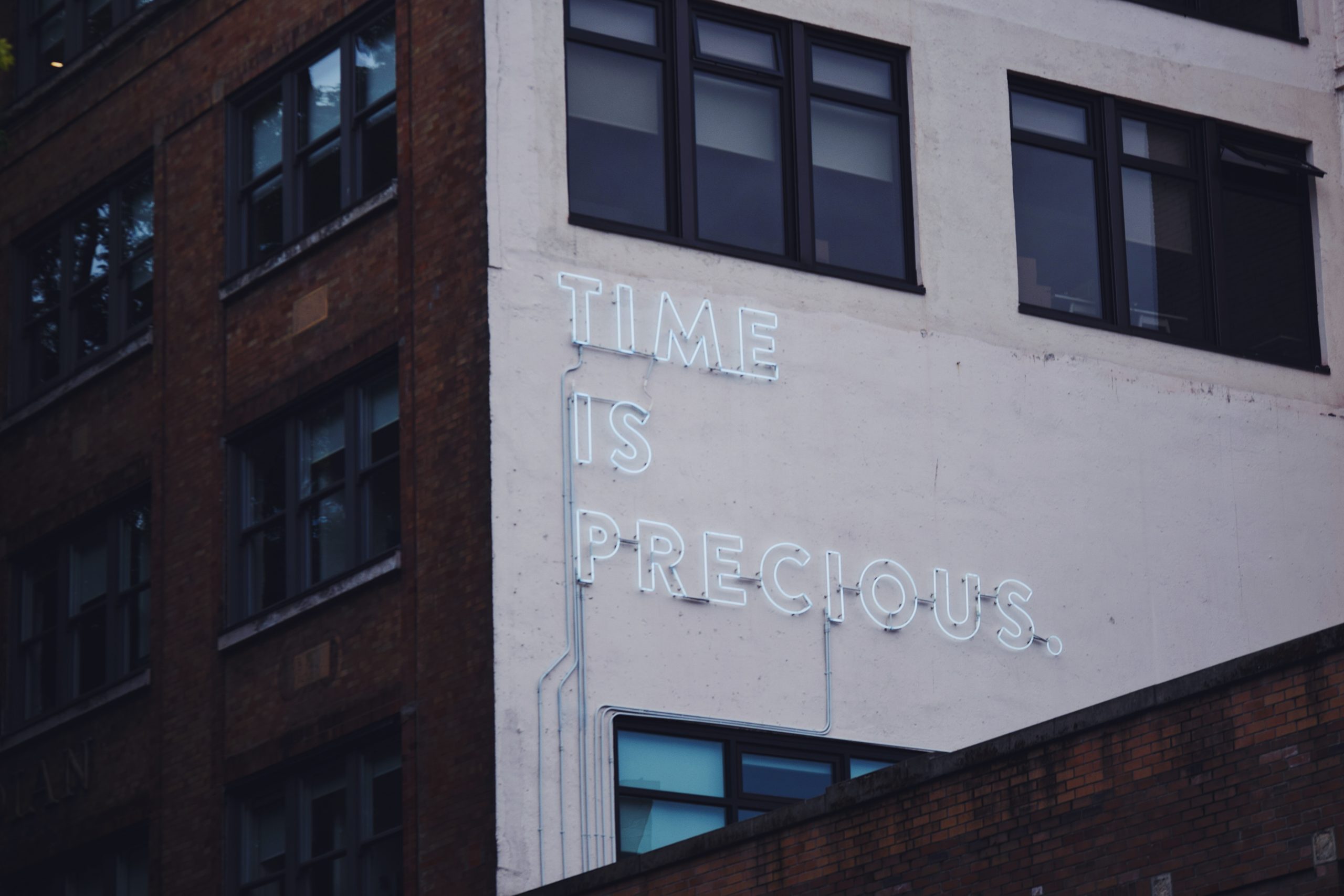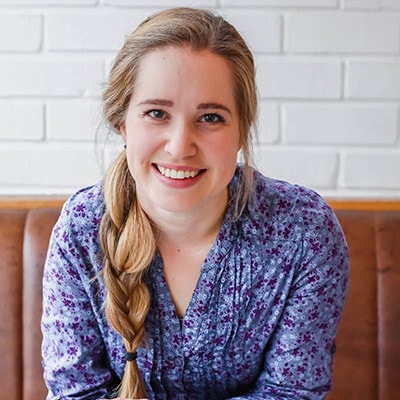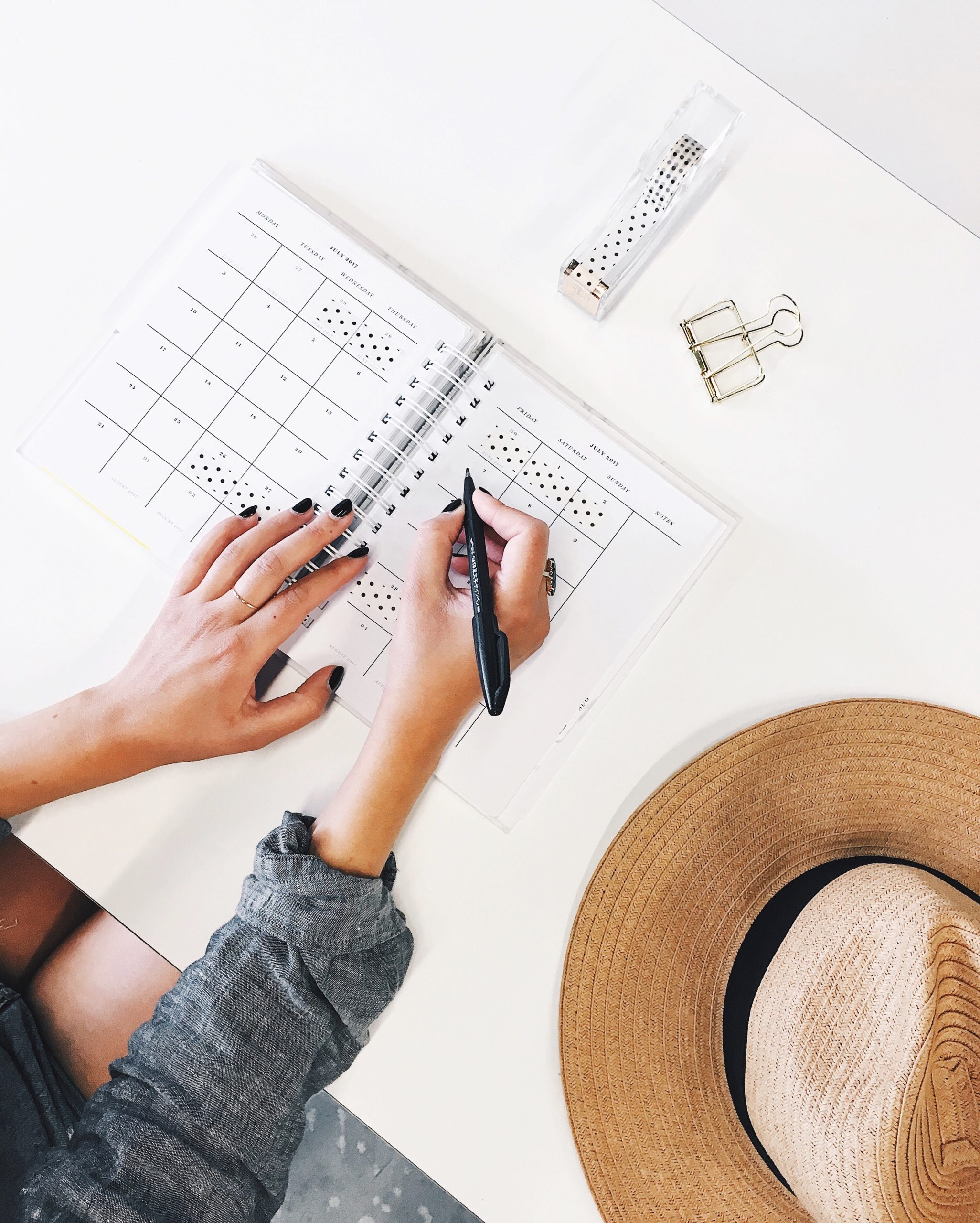Tune In to the Episode: Apple Podcasts | Spotify | Stitcher
Our fear of judgement can hold us back from doing and achieving the things we want most in life. Whether it’s being judged by strangers on the internet, someone we love, or even ourselves, that fear can tell us all sorts of lies that can be easy to mistake as truth.
But here’s the thing, that kind of fear is always irrational. Until we can learn to walk through it and put ourselves (and our businesses) out there, the fear of other people’s opinions will continue to keep us quiet.
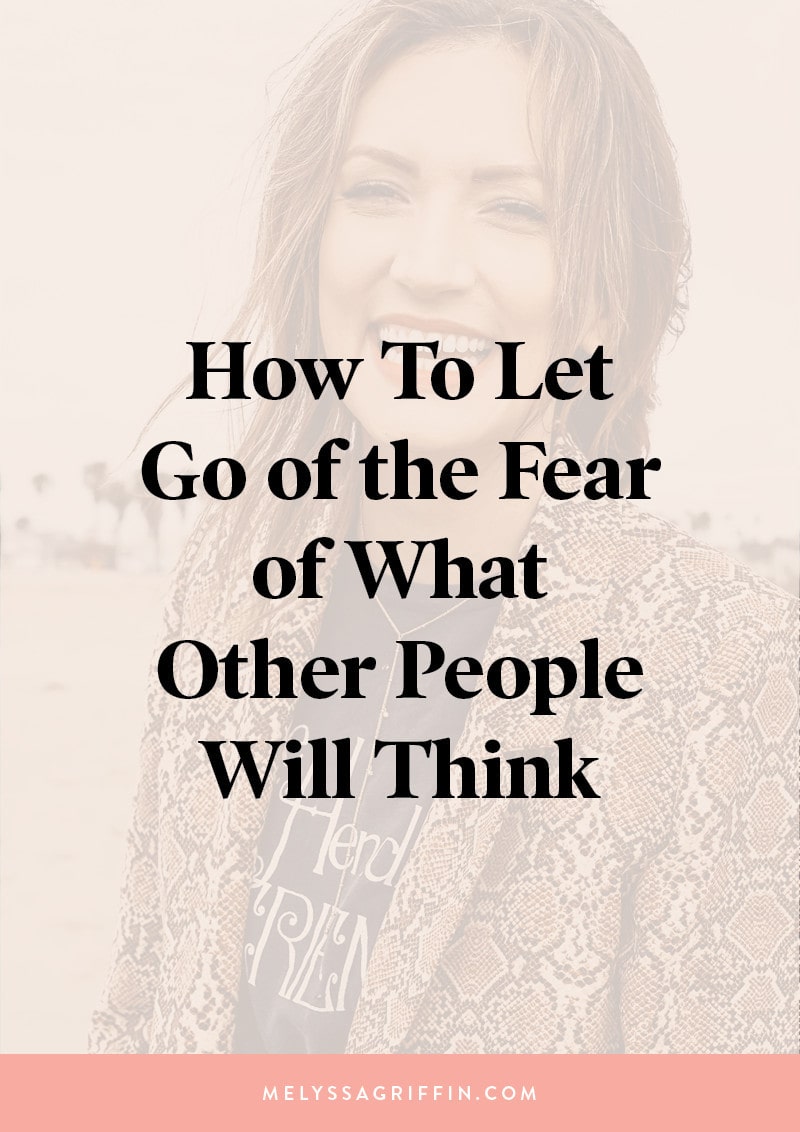
In today’s episode, I’m sharing a #LimitlessCoaching call where I privately coach Katie, a relatively new business owner who does mindset and mindfulness coaching for creative entrepreneurs.
One of my favorite things about these coaching episodes is that the fears and insecurities that someone else is experiencing are entirely universal. So, even if you’re not in the exact same circumstances as someone else, the mindset advice is often the same (because the fears are the same, deep down!). I think you’ll find that this is profoundly true when you listen to this conversation with Katie.
Recently, she started noticing that her fear of being judged by others was keeping her from showing up as her fullest self in her company. With goals like speaking on stages, creating online courses, and ultimately just putting herself out there in a bigger way, the stories Katie told herself kept her playing small.
As we moved through this coaching call, Katie got to witness her own wisdom and growth to discover a more limitless version of herself.
So, for anyone who’s ever censored themselves, dimmed their light around certain people, or held back from sharing their work out of fear of what someone else might think…this episode is absolutely for you. I can’t wait for you to listen!
Listen to the episode below:
This episode discusses topics like…
- Katie’s desire to play “bigger” by speaking on stages, writing books, and being “seen,” coupled with her fear that keeps getting in the way. We dig deep into where it’s coming from and new possibilities that will serve Katie more.
- How to acknowledge your growth and power instead of clinging to old, disempowering stories about yourself.
- Precisely whose opinions she’s most afraid of (this part might surprise you — and I bet it will empower you!).
- What it means to want “more” from your life, and how to create a life of more without the guilt.
Ready to break through the roadblocks holding you back from “The Thing” you really want to do? You’re in luck! Because I’ve created a free, 5-day challenge to help you remove fear, ditch doubt, and move from less overwhelm confidently into more results. Click the image below to sign up!
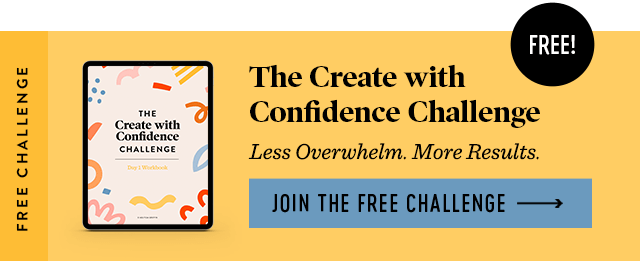
Links from the episode:
- Register for the free, at-home Limitless Entrepreneur retreat here!
- Follow me (Melyssa Griffin) on Instagram for honest conversations about business, mindset, and my life.
- Follow the Limitless Life™ Podcast on Instagram for new episode releases and wisdom on how to live a life with no limits.
How to subscribe + review:
Want to be the first to know when new episodes are released?
Also, podcast reviews are pretty darn important to the iTunes algorithm and the more reviews we receive, the more likely we’ll be able to get this podcast and message in front of more people. I’d be extremely grateful if you left a review right here letting me know your favorite part of this episode.
Share on social?
Did this episode help you expand what’s possible for your life or business? Do you think your social media followers may learn something, too? I’d be forever grateful if you shared it on social media. 🙂 If you do, tag @melyssa_griffin and @limitlesslifepodcast so I can repost you! Woohoo!
Do you have any blocks or fears around being “seen” in a bigger way in your business? What would become possible for you if you didn’t have these blocks?
Thank you SO much for being here, sweet friend. I’m honored to walk this journey with you. See you in the next episode!
xoxo
Melyssa
Melyssa: Well, I’m excited to get started, Katie. What is it that you want to talk about today?
Katie: So, I really want to focus on this massive limiting belief that I have around being seen. The fear of being seen. I am putting myself out there and my business, I’m getting more eyes on my website more traffic, all of that. And I know that’s a good thing. I want more exposure. I want to be working with more people. But there’s this fear of being seen. So even though I’m excited for all of that, there’s this part of me that’s really hesitant about it because I’m not used to being in the spotlight or having people pay attention to what I’m doing. And so there’s this fear that’s coming up about people seeing me and everything that comes with that.
Melyssa: What do you think they would see if they really saw you?
Katie: Well, I think a lot of the things would be good. I mean, I think they would see how passionate I am about what I’m doing, how passionate I am around mindset and helping entrepreneurs shift their mindset and all of that. But I think the fear is that they would think maybe I’m not capable or that I don’t know enough to be helping other people. That they would see someone who they don’t think can really help them. Maybe. If that makes sense.
Melyssa: It does. Yeah. They get to know you more and then almost feel like you’re a fraud in a way.
Katie: Yeah. It’s a lot of imposter syndrome. On the one hand, I know I’m capable and I know I have so many gifts that I want to share with people, but there’s this part of me that’s just terrified that people will think I don’t know enough to help them or that I don’t really know what I’m doing. I’m still figuring things out. And so that’s a really strong fear.
Melyssa: Right. Was there ever a time when you felt like you were seen but it wasn’t good enough?
Katie: That I wasn’t good?
Melyssa: Mm-hmm (affirmative). So, the people who are seeing you, it didn’t meet their standards?
Katie: I can’t think of a time, but only because I think I’ve played it very safe in my life. I think I haven’t put myself into positions where there could be judgment or criticism from other people. And so I maybe haven’t allowed that to happen. I haven’t even allowed myself to be in a position where I can get judged or people could think, I don’t know what I’m doing or a position to really be seen.
Melyssa: And so why now? Why are you desiring to put yourself in this position to be seen?
Katie: I have been working a lot on my mindset on this imposter syndrome, on all of these negative beliefs that I have over the last few years. And I feel like I’m so ready to just be done with all of that. I’m so ready to just move past that negative critic that I have in my head because I want big things for my life. I want to be putting myself out there. I want to be sharing, I want to be teaching other people the things that I’ve learned over the last few years.
And there is this huge part of me that feels like I’m so ready I could just burst. Like I’m so ready to just put myself out there. I want to be speaking, I want to be doing videos, I want to be really helping people in a big way. And so I feel like this is the most ready I’ve ever been, even though I still have these fears and they still have this impostor syndrome. This right now is the most ready that I’ve ever been to take action and to put myself out there.
Melyssa: That’s pretty powerful. What led you to feeling so ready? This visual I have is like you didn’t want to be seen for a long, long time and then all of a sudden you’re like, give me the stage, give me the mic, give me the book deal. I’m ready. What happened?
Katie: So, I am a writer as well, sort of why I’m passionate about helping people who are creative. And I wrote a novel and I was able to sign with the literary agent last year. Actually almost a year ago. And so that was huge to… All of that hard work that I had done on the manuscript, all of this hard work I had done in my mindset, I was able to do something that I previously didn’t think was possible. I didn’t think before that it had been possible to pursue publication. I just thought it was this pipe dream and it could never happen and then it did. And we’re on the path to publication right now, nothings’ official or anything, but reaching that goal and achieving that made me realize it’s like the whole world just opened up. There are so many things that are possible for my life that I didn’t think were possible even just a few years ago.
And so while I was working on that and trying to sign with an agent, I just kept encountering all of these negative messages around how difficult it is to get paid doing what you love, how difficult it is to be a writer, to find an agent. All of these things. And friends that I know who are struggling with those beliefs and I just felt like I want to help other people shift their mindset just like I have. And so that was the catalyst for me realizing, wait a second, there’s so many more things that are possible for my life that I dreamed of and I want to help other people come to that same realization.
Melyssa: I really love that because I think you’re speaking to a point that a lot of people feel where the fear can be there for decades sometimes, but then when you find the thing and the thing that you really care about, that you’re passionate about, once that starts to outweigh the fear then you become unstoppable. And it’s like don’t really matter anymore because you’ve got a mission. You got to make it happen.
Katie: Yeah, absolutely. And I do feel like it is a mission. It feels like things happened this way for a reason. I mean, this is something I never would have even considered a couple of years ago. And so things had to align in a certain way where I could be like, oh no, I am ready even though there’s fear, even though there’s still things I’m working on, I’m ready to put myself out there now because of all these things that have happened. And so now I’m just at this point where I don’t want the fear that’s still there to keep me from moving forward even more.
Melyssa: You don’t want to lose the momentum that you have now.
Katie: Exactly. Yeah. I really want to keep moving forward. I don’t want to be holding myself back because I’m afraid of people seeing me or judging me or whatever these negative voices might tell me.
Melyssa: When you think about… You said the fear of people judging you. Who are you afraid is going to judge you?
Katie: That’s an interesting question that I’ve thought a little bit about and this might sound strange, but I’m almost more afraid of judgment from people that I know than for people I don’t know. Like I don’t-
Melyssa: That sounds pretty spot on actually.
Katie: Okay, good. When I think about putting myself out there on a blog or social media or video, whatever it might be, and having strangers judge me it doesn’t seem as scary because they’re anonymous, they’re just strangers on the internet. It doesn’t really seemed like it would sink in as much. But I am very scared of judgment from family members, friends, just anyone who actually knows me to say, hey, I’m doing this thing. I’m really passionate about it. This is what I want for my life. And I’m scared of them saying, this is silly, this is never going to work, this is not a good time to be starting a business or going out on your own. Like all of these things. I’m just so afraid of that judgment from people that I know.
Melyssa: Yeah, and it makes sense because logically the people on the internet don’t really know us but the people that we’re close to know the core of us and so it can almost like hit harder if we feel like their approval in our words because they know us and they know what we’re capable of, essentially is what our mind will tell us. They don’t think we’re good enough for it then maybe we’re actually not is what we start to create the story of.
When you think about, you said your family and your friends and sometimes it can be even more overwhelming when we think about like all of our family, all of our friends are going to have this thought about us. You don’t have to say who they are, but is there a particular person or a couple people that stand out more to you? When you think about, you put this out there, you do it big, you start speaking, you really make this a bigger part of who you are in the world. Is there one or two people that you’re thinking like, I’m really afraid of what that person’s going to say?
Katie: Yeah. Two people in particular and they’re sort of representative of… They embody… When I’m thinking about judgment from people, it’s these two people specifically. Yeah.
Melyssa: Right. And why them?
Katie: I’ve known them one my whole life, one a good chunk of my life. And they’ve seen me grow up. They know who I am and they’ve seen all versions of me, when I was really shy, when I was really struggling in my twenties, just everything. And I spent so much of my life trying to please these people, trying to make them like me to try and fit in to what I thought would make them happy, I guess, or accept me.
And there’s still that lingering belief from my younger self that I want to make them happy. I want to please them. I want them to think I’m cool. It’s just so silly to say that, but it’s true. It’s like this 12 year old version of me that’s like, just like me think I’m cool. And so I think that’s why I have this fear of judgment from those two people in particular. And it’s irrational. I know that they’re not paying attention to me in the way that I think that they are. But it’s still there.
Melyssa: Fear is always irrational. So it’s not wrong that it feels like logically… Logically we can think our way out of a lot of our fears we’re like, this doesn’t make sense. Why am I still thinking this way? But until it’s embodied and then we’re acting from that embodied place of this new wisdom, then it’s still going to be there. So, don’t worry about it being rational or not. It’s just there. It is.
Katie: Okay.
Melyssa: And so these two people, and I’m glad we narrowed it down too because it can feel like this big mob when we think about, I’m afraid what people will think. Well, people actually ends up being just like one or two people usually, and then it feels a lot more manageable versus like the entire world. And you said that they’ve seen all versions of you and you want them to think you’re cool, which by the way, I totally get that. There’s nothing wrong with you. There’s nothing silly about it. You feel how you feel. What makes you think that they won’t think you’re cool or good enough if you do this and you put-
Katie: Both of these people are fairly restrained, I would say. Not a lot of deep, honest conversation has happened over the years. And so the fear is that they would look at what I’m doing, what I’m writing and saying and what I’m putting out into the world and think that it’s just fluffy, woo-woo, nonsense basically. And that they would discount me because of that. That I’m not serious. I think if I was pursuing something like starting my own retail store or something, I don’t think I would have these fears. I think they’re because I’m talking about mindset and mindfulness and all of these things that are a little more abstract. The fear is that they’ll think they’re not important or not serious.
Melyssa: And if you go even a layer below that, what is the fear you say? What are you afraid that they will think? If you’re not serious then you’re not what in their mind?
Katie: Maybe that I’m not good enough to be doing anything like this, that I’m not maybe even worthy of doing this, worthy of wanting more for my life. Which sounds so strange to say, but in saying it out loud, I feel this pressure in my chest like, oh, I think that’s it.
Melyssa: Why that?
Katie: I think because so much of my life has been spent wanting approval from these people that their approval would signal I’m worthy, I’m good. All of that. I’ve never really considered before. I’ve never stopped to think about what was underneath all of that fear I just assumed it was basic fear of what they would think. And then I never stopped to go any deeper about what it would mean.
Melyssa: How does it feel to go a little deeper?
Katie: I think I have two feelings. One is sadness that I’m still dealing with these fears at this point in my life with as much work as I’ve done especially around the people pleasing, I feel like I’ve come a long way, but there’s still that part of me that’s struggling with it. So, I think there’s a little bit of sadness there. But then there’s also anger too. Like why does it matter? These are just two people. Like you said, it’s just two people. It’s not the world. It’s not every single person that I know, it’s two people and I’m letting the fear of judgment dictate so much of what I do or don’t do. I don’t want to give them that power.
Melyssa: Can I share a thought with you?
Katie: What’s that?
Melyssa: You said that you’re letting two people have this power over you and two people can actually feel like the whole world if those two people’s opinions matter so much in certain way to us. So, for me, it’s not something to judge yourself about of like that’s two people, what am I doing? Why am I giving them so much power over how I feel? Because that’s the work and they have that power over you because of a lifetime of those small ways that they’ve had that.
Melyssa: You said something a second ago about fearing their judgment and what I’m noticing about how you’re talking about this is almost like a judgment of yourself too of why do I feel this way? I feel sad that I’ve let two people have so much power over me and angry that I’ve let it hold me back and I feel a lot of judgment of yourself in that. So it’s almost like the fear that they’re judging you but you’re actually the one that’s wielding the power over how you feel.
Katie: Yeah. I think there is some self-judgment there which I hadn’t really noticed, but yeah, you’re right.
Melyssa: What would you?-
Katie: Like I shouldn’t feel this way. Why do I feel this way? Which is absolutely self-judging.
Melyssa: And what would it look like if you hold this thought of these two people and their judgments potentially and how they would feel about your work without judging yourself about how you feel about them and your relationship to them right now?
Katie: I think if I tried to do that without the self judgment, it’s a little bit easier to detach from it. It’s a little bit easier to look at it without getting caught up in the stories in my head or how am I feeling or why do I feel this way? If I let go of all of that, I can step back and look at it a little bit more objectively. And then also just give myself grace and compassion for the way that I’m feeling instead of just continuing that cycle of like, I shouldn’t feel this way. Why do I feel this way? This is wrong.
Melyssa: I love that. So brilliantly and wisely said that when we’re judging ourselves, we’re almost like in this and this vacuum of feeling the emotion and anger and sadness of it versus being able to step back and see it from this higher level of, oh, this is just the way it is. I don’t have to judge myself for it. I’m a normal human having normal human experiences and thoughts and that’s okay. And everyone goes through [inaudible 00:25:08] and I can just have an awareness of it. But the emotion and the self judgment of it, more the self versus the emotion, this self-judgment, it keeps us in that frequency of the anger and fear and all the things that we are trying to avoid.
Katie: Yeah. It’s very easy to stay stuck in that if I let myself.
Melyssa: Yeah.
Katie: To consume so much of my thoughts and my energy.
Melyssa: Yeah. And you [inaudible 00:25:46] two people, because you mentioned earlier that they haven’t done these types of things. They’re not people who would do coaching or they might look at it as woo-woo like you said, or they might not respect it. Why is it that you’re giving so much power to two people who wouldn’t even be your ideal client or person that you would want to be serving?
Katie: That’s a good question. It’s possible that part of the fear of what these two people will think is linked in with my own fear, a small fear that I have that people who would be my ideal clients, people who I would want to work with would also think that what I’m doing isn’t valuable or what I’m doing isn’t worth it. Yeah. I’ve never put that together.
Melyssa: What’s interesting about that is you recognize that these two people aren’t your ideal client or customer, but there’s almost this projection that your ideal people will have the same reaction that these two people will, even though these people seem far away from the type of people that you would want to be serving. And so it’s almost like you get to start creating a vision for who are these ideal people that I want to serve because these people are going to see the value in what you do hardcore. They’re going to be so excited and so grateful for what you bring to the table. So, it’s almost like a rerouting the people who don’t see the value in it as those two people and then the people who will see the tremendous value in the work that you do and compartmentalizing them, separating them in your mind versus making it this big glob of feeling like they’re not going to see the value in it.
Katie: Yeah, that makes sense. I have just started working with people and I do get this reaction of like, people are so excited to work with me to kind of be shifting their mindset and to learn about like mindfulness and meditation. I mean, they’re just so excited about it and I discount that. I’m like, well, that’s true with these people over here but it might not be true with everyone that I want to be serving, all of my ideal clients. But I think that’s helpful to focus on, as you said, compartmentalizing. These two people are over here, they’re not who I want to be serving and who I want to be helping anyways. So let me just focus on these people over here who even in the short time I’ve been doing this, are really excited about what I’m sharing and they’re excited about what I’m teaching.
Melyssa: That’s so interesting. It almost feels like it’s too easy. It’s like well, people don’t count because they already would have liked this type of thing anyways. Yeah, because those are your ideal people. Those are the people that you’re meant to be serving right now. We can get so caught up in our minds, but I need to serve everyone and if there are people in the world who don’t see the value in it, then it must not be valuable. But when you’re creating a business and really anything that matters, it often won’t resonate with everybody in the entire world. Probably there’s nothing that would resonate. Even world peace wouldn’t resonate with everybody in the entire world.
Melyssa: So it’s like really just focusing on the people that we are meant to be supporting. And not discounting the impact that we have on those people. Because it could be easy to say that it’s just easy. And so therefore it’s not making a difference, but it is for the right people. And maybe do you think it’s a sense of getting really clear on who those people are so that when they come to you, you actually can start to praise yourself of like, look at the work that I’ve done in the world. That I’ve done online, that I’ve done speaking, writing to attract these types of people into my business and as clients and customers. I had to do some serious work to even get to that place because maybe you five years ago wouldn’t have attracted those people where now it’s coming so easy. And so you get to acknowledge yourself for the work that you’ve done to attract those people in the first place. And it feels easy. Great. You’re doing something right.
Katie: You’re right, there is this belief of things have to be hard, things have to be difficult. You have to really struggle to get X, Y, and Z. But yeah, that’s a good way to think about it too. Even two years ago, I wouldn’t have been attracting the right people. I wouldn’t have been attracting the people that I am now and then I want to continue to attract.
Melyssa: Do you have any practices in place right now to acknowledge yourself for what you’ve done internally and in your life? To get to a point in the last two years where you’re attracting all these amazing people? Do you ever acknowledge how awesome that is that you created that?
Katie: No, I don’t have any sort of system like that and I think it’s because I’m always so focused on what’s next. Like what’s the next layer of the onion that I have to peel away? What’s the next belief that I have to work on? What’s the next thing that there is to sort of overcome. It’s hard to focus on the growth and I’ll have moments of it where I compare myself now, like this version of me to the version of me years ago. And think about how I would have handled situations then, but I don’t do that enough.
Melyssa: And I’m finding this so interesting. So you’re saying that you’re always focused on what’s next instead of what is right now acknowledging yourself and focusing on the next thing. If you had a client and I know you teach mindfulness, you had a client that came to you and said that exact same thing. I’m always focused on next I can not be grateful for what I’m doing in the moment. What would you tell them to do?
Katie: Well, one of the huge things I have told people is to help stay grounded in the present is gratitude. Being mindful of the present moment and thinking of all the things right now that you have to be grateful for. To kind of just be where your feet are. Where you at physically in this moment today. Right now. Yeah. And I would also give them practices that they can use. Because so much of it is like living up in our heads where we’re like thinking about projecting into the future. Just thinking about the past. We’re all up here, we’re not in our physical body at all. And so any kind of practice to just get people into their bodies right now, what am I doing? Where are my feet? I’m sorry I think I need to be taking my own advice here instead of thinking about what’s next.
Melyssa: Right. Yeah. And it’s so interesting I’ve noticed I think this is kind of universal from what I’ve noticed that what we teach is also biggest medicine and we need to take too. And that sometimes we don’t, or we forget because we’re teaching it to the world. But it often ends up being the thing that we need the most too. And so I think for you it could be really powerful to think about how could I incorporate more of those same practices to create my own plan. Or treat myself as my own client on how I can be grounded in the present, in my body, find gratitude, acknowledge myself.
Melyssa: And I think a lot of these things that you’re… I know you came into the call feeling like maybe you’re not good enough or that you’re afraid that people will see you. I think a lot of those things will start to unravel as you see the impact that you’re already having on people. It’s clear that you already are having that impact on people and then acknowledging everything. Before we quickly go to the next step we don’t acknowledge everything that we’ve done to get to this place, then it can feel extremely fleeting. And then we can start to get in our head, what am I even doing? What impact does this even creating? Because we’re not sitting down to see it.
Katie: Yeah. And there’s a lot, I mean, even stepping back and looking at stuff that I’ve overcome in the last six years or so it’s a lot. And I’ve taken a lot of action to get to this place and to move forward and it is so easy to get caught up in the next thing. But I do need to acknowledge what I’ve done and the impact that I’m starting to have on people. Because there’s always going to be something next. There’s always a new thing to work on. There’s always something else to worry about in the future. That’s never going to stop.
Melyssa: Sure. [inaudible] I’m curious actually about something you said earlier. I know that it was something you were sort of unearthing inside of you about this feeling of being unworthy to want more. It seemed like something that was really powerful for you. What does more mean to you?
Katie: More means not accepting things in my life that are just okay. More to me means not being satisfied with a nine to five, that doesn’t fulfill me just because it’s a job and I should be grateful for it. And I’ll just work at it for the next 35 years until I retire. More means I want to spend my time doing things that I’m passionate about. I want to spend my time focused on stuff that matters, on helping people. That’s what more means. It’s like more freedom, more impact, more passion, more abundance, more everything. Instead of just being satisfied with well, this is the way things are right now its good enough. So this is the way that things will just have to stay.
Melyssa: Right. Yeah. Thank you. So to reflect that back to you, to you more means not needing to have a nine to five, being able to do things that you’re passionate about, doing things that matter to you, having freedom, making an impact. So why on earth do you think that you’re not worthy to have all of those incredible things?
Katie: When you pose it as a question I want to say like, yes, I am worthy. Yes, I want all those things. None of that stuff is completely ridiculous. I’m not asking for things that are absurd. I mean all of that is great and good and I am worthy of those things. It sounds-
Melyssa: And its not a trick question.
Katie: What’s that?
Melyssa: It’s not a trick question. It’s not like of course I’m worthy. I’m actually curious why you believe that you’re not worthy of those things.
Katie: I think I’ve been raised in a way and I’m surrounded by people who work nine to fives and to follow this kind of traditional path in life and that’s the epitome of life. Is to have a nine to five is to get married, have kids, white picket fence like that’s what life is. And for me to question that or to want more for myself, it almost seems maybe there’s a fear of me telling other people that what they’re doing is wrong and it’s not good enough. That for me to want more means there’s something wrong with that.
But there’s not something wrong with that. There’s just something wrong with that for me. And I think there’s some fear of being too self centered. Like I want all of these big things for my life and I don’t want that to make me selfish or greedy that I’m reaching for all of these things that I want. When there are so many people who don’t have them or don’t even have the chance to reach for those things, don’t even know that they can reach for those things. So maybe there’s a fear of kind of being selfish too.
Melyssa: Do you think it’s possible that you reaching for bigger and different things could make a positive impact on the people that you’re describing?
Katie: Yeah, it absolutely could. I never think about it like that, but that’s how it’s been for me. When I see people who are doing different things, who are quitting their nine to five and really putting themselves out there and doing all these wonderful things. I’m like, Oh wow, look, they’re doing it that means it’s possible for me. So it only makes sense that if I start doing that, then people in my life could say like, wow, I didn’t even know that was possible. That’s amazing that she’s doing that. That she’s going for what she wants. Even those two people, they might think that, I don’t know.
Melyssa: They might, yeah.
Katie: Maybe not, but maybe I have no idea.
Melyssa: Right. And you could inspire other people who are looking for somebody to shifted their reality. They know that something in their life isn’t the way they want it to be. But they don’t know what it might look like for it to be different. And you could actually be the person to expand their vision of what’s possible for their own lives. You playing smaller is going to keep them in the [inaudible 00:42:57] not to.
And if you think about the people who have nine to five and they have kids and they have the white picket fence. And instead of holding it as, because I feel like there’s subconscious judgment of them being that way. And so if you live differently because that’s the way that you want to live, then they might be offended because inside of you it feels like not having a nine to five is good and you’re living larger and that’s an amazing thing. And for some people they actually genuinely they want to have nine to five and they want to have the family and the white picket fence and your life that you want to create sounds like it held to them sounds like a personal hell.
So it’s also like being able to hold both without judgment Because I think where part of it is coming from is the judgment of you living in this different, bigger way. Getting out there more, growing a business, you’re doing things in a different way and that that feels better to you. But this almost assumption that it must feel better to them and so it’ll will trigger them. But actually maybe they can look at what you’re doing and think nice and also I am so happy here with my two kids and my nine to five job.
And so holding both of those, knowing that they can both be 100% accurate and beautiful and true for each individual person. And you might trigger some people who do want more, but they’ve resigned to this sort of existence that doesn’t feel good to them. And either you’ll inspire them to reach for more or you’ll trigger them about where they’re living right now. And I think both can be just as valuable. Because triggered people get to examine their triggers and make a change. So it’s really a gift you can’t lose, you’re giving them a gift no matter what. A gift of really just opening their own perspective about what they want in their life.
Katie: And then it almost seems like, I mean this might be a strong way of putting it, but it almost feels like a responsibility then like I wouldn’t really want to be doing these things. To inspire other people or at least make them examine if maybe they want more too.
Melyssa: Almost like a mission.
Katie: Yeah. It is a mission. I like that.
Melyssa: The other way if you’re worried that you living larger is going to offend or bother somebody else. There’s this tinge of people pleasing in that let me not go against the grain. Not do anything different because I don’t want to make anyone uncomfortable. But that’s applying the judgment that uncomfortability is a bad thing. When maybe you make them uncomfortable and then they get to think different. Maybe they haven’t felt uncomfortable in that way their whole life.
Katie: Yeah. I can’t even think about that in my own life. When I’ve been really uncomfortable is when I’ve had to examine what’s underneath that? Kind of what you’re saying with the trigger, why am I being triggered by this? Why am I so uncomfortable? What’s behind this? And then it sort of leads to a realization or me uncovering something about myself.
Melyssa: Right? Yeah. And what a gift that you can give people by giving them the uncomfortability. People pleasing actually can be sort of selfish. I don’t mean it in a negative way, but it can be I will hide the truth of who I am because I don’t want to make you uncomfortable. When actually making someone uncomfortable could be a really beautiful thing.
Katie: Yeah. And I think that’s what I’ve been doing my whole life is sort of not wanting to go against the grain or rock boat in any way, which is selfish because it’s about me not wanting to. The worst possible thing would be to make someone else uncomfortable or any sort of negative emotion. But being uncomfortable it isn’t a bad thing. It doesn’t have to be this negative thing they’re making it out to be.
Melyssa: Maybe spending some time thinking about what gifts would I be giving people if I made them uncomfortable or if I triggered them a little bit. What would be the benefit in that for them and for me by you living your biggest self. So there’s a gift for both people.
Katie: Yeah. I like that.
Melyssa: So when you think now about are you worthy of wanting more. How does that feel for you?
Katie: There’s still a little bit of resistance, but there’s also this feeling of I almost want to stand up a little bit straighter. Of course I’m worthy. Yeah. Which is sort of strange that it can be both at the same time. And it also makes me think about the word mission, what you were saying like this is what I want to help other people do. I mean, this is so fundamental to what I want to be teaching. People who are creative that you are worthy of all of these things. And so helping it sink into me is going to help me help other people come to that same realization. Yeah.
Melyssa: I love that. And when you think of the resistance that’s still there, what is the resistance telling you? What is it resisting?
Katie: I think it’s a little bit of still a little bit of fear about judgment from those two people. And it might just be because there in the top of my mind. I’m thinking about them right now. But it’s less, these two people can sometimes loom very large for me and they don’t feel quite as large. But I think some of that resistance is just still walking through, why their opinions are so important. And sort of walking through what it would mean to just put them over here and not listen to what they’re saying and focus on the people that I’m going to be serving.
Melyssa: Right. Until the people that you’re serving will become the louder voice.
Katie: Yeah.
Melyssa: And until really the goal being that you becoming the loudest voice, just your internal guidance and be able to smash off the other voices.
Katie: Yes.
Melyssa: Can I share a thought with you too?
Katie: Please.
Melyssa: I was thinking about these two people’s potential judgments of you and maybe they will, maybe they will have some thoughts about what you’re doing. Maybe they will think you’re planning too big. You’re not qualified. That how could this shy people pleasing girl five years ago turn into this author speaking on stages. Doesn’t make sense? They might have judgments of you, but somebody else’s judgments of you have literally nothing to do with you. And it sounds like, okay, yeah, I guess it makes sense. But if you really like backtrack it and you think about somebody else’s judgments, you can actually start to find the truth in that. Where maybe their judgment of you is I can’t believe she’s speaking at events.
“I never thought I could see her doing that.” And maybe deep down inside of them they felt or they were taught that speaking up about what you want is rude or going against the grain is bad. Or having a thought that’s different from the status quo is not acceptable. And that was passed down to them from somebody else. They had to learned that from somewhere. It’s not an authentic thought. And so if we’re not conscious of our thoughts then we can keep passing these down for centuries. And so it might not even belong to them. That thought of playing bigger is bad and it might not even belong to the person that passed it down to them.
It might just keep going centuries and centuries and it really just takes somebody, one person in a lineage and that person might be you to see the pattern of playing bigger is bad, wanting more is bad and just cut off the cycle. And that’s how you change entire ancestries of thought and what’s possible for your entire family and lineage. And so just sort of remembering that everything that somebody thinks about us is coming from their own projection of their own life and experiences and thoughts. And they might have genuine opinions. That person might genuinely think you speaking on a stage is wrong or you’re not good enough, but it’s not coming from their authentic place.
Because if you drill down inside of everybody and you shut off all the layers that family and society and all the things has placed on us, then we’re really just love. We’re really just loving beings who want the best for one another. We want people to feel like they’re part of this community. That’s what we are at our core, but we have all these things put on top of us that make us more judgmental or cynical or fearful. And so just remembering that’s the side of them that they might project onto you because of a story they learned from a long time ago. And you get to be the person who A. Doesn’t take it personally because it’s not about you. It is genuinely about them in their own experience. And B. You get this beautiful opportunity to cut off the cycle that might have been happening.
Maybe you’re like your ancestors from 300 years ago thought the same thing. They were like, I don’t want to play bigger because that’s bad. I don’t want to speak on stage in the town square because that’s not a good thing. I need to be nice and I need to be a cobbler whatever they did 300 years ago. But even have she’s then, I don’t know. But just thinking about what an opportunity you are gifting yourself to go against the story that might have existed there for a really long time. And that it doesn’t have to do with you what they might think. It’s really just the story that’s been passed down.
Katie: Yes. Oh, I love that. Yeah. Breaking the cycle. Yeah.
Melyssa: So what’s possible for you now that didn’t feel as possible an hour ago?
Katie: All this energy now. I want to just put myself out there more than I did even an hour ago, blog posts in YouTube videos and social media and all the things speaking when I can, again. I want to be reaching as many people as possible because these things that I feel like are stopping me or not really…There are things that can easily walk through and step back and examine instead of letting them just feel so heavy. That these beliefs are so heavy, I can sort of step back. Yeah. I’m excited. I am. Yeah.
Melyssa: Good.
Katie: And it makes me feel more passionate about what I’m doing because this is what I want to help people do. And if I’m getting caught up in these stories. Then imagine how many other people are also getting caught up in these same stories. So that makes me even more passionate about it.
Melyssa: And you’re seeing that it’s even bigger than you.
Katie: Yes. Yes.
Melyssa: It’s been about you and your fear. And now it’s like, whoa, it’s about these cycles I’m breaking. It’s about these people I’m impacting. It’s about the people I’m making uncomfortable in a great way. There’s so much that you stepping into your power is going to change the world for awesome.
Katie: Yeah. That is awesome. It’s very exciting. Yay.
Melyssa: Really well done. That’s so great.
